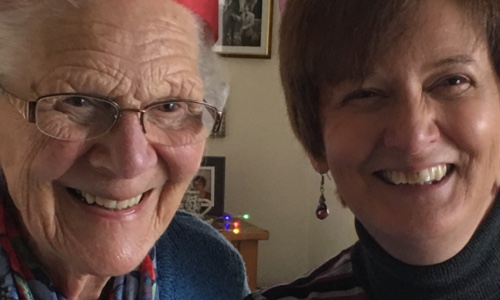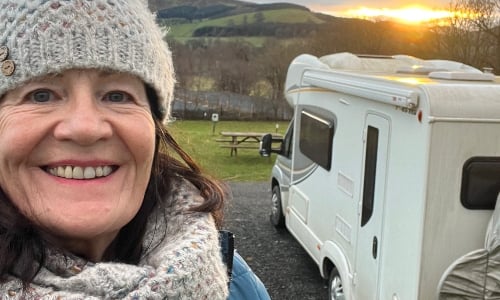Community-minded Agatha has always loved helping people.
She’s volunteered at her local Age UK in Wandsworth as a receptionist and telephone befriender, and has been recognised by her local Mayor for her voluntary work in the borough.
This kindness has run through Agatha’s role as a mother and grandmother too, influenced by the love she felt from her own mother at home in Nigeria.
The legacy of Mrs V N
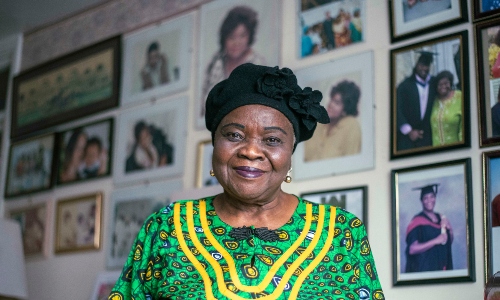
Agatha grew up in a lively house in Lagos, Nigeria, with her parents, 10 siblings, and many cousins. She says that her dad was strict, while her mum – known affectionately as “Mrs V N” because of her English and African names, Victoria and Noyelu – spoiled them.
At dinner time, Agatha recalls, “I was one of those children that screamed: ‘I don't want this, I don't want that!’ My father would say: you must eat it. And my mother would say: ‘no, she doesn't want it’.”
Agatha moved to London to study in 1966. She really missed her mum and used to go back to Nigeria every other year. Before she died, Agatha’s mum came to live with her for four months. Doctors in London discovered she had a problem with her heart and wanted to operate on her, but she refused, and returned to Nigeria for treatment but sadly died soon afterwards. “I've still got her slippers under my bed,” says Agatha.
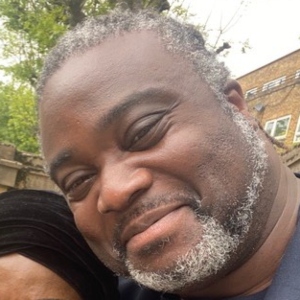
As you get older you get a lot more respect for your parent, in terms of thinking, ‘My God, you handled all that on your own?’
Diligence and resilience
Agatha met her husband after moving to the UK, and they had two children together: Steve, born in 1971, and Melissa, born a year later. But Agatha’s husband moved back to Nigeria when the children were still young, so Agatha was a single parent for many years.
Steve says that Agatha was a strict mother and a stickler for the rules. But he is full of admiration for how she brought him and Melissa up. “When I was young, I didn’t realise a lot of the things she was doing,” explains Steve, who lives close to Agatha in south London. “Now I’m a parent myself, I see it: there’s so much that’s in the background that you do as parents. So, as you get older you get a lot more respect for your parent, in terms of thinking, ‘My God, you handled all that on your own?’”
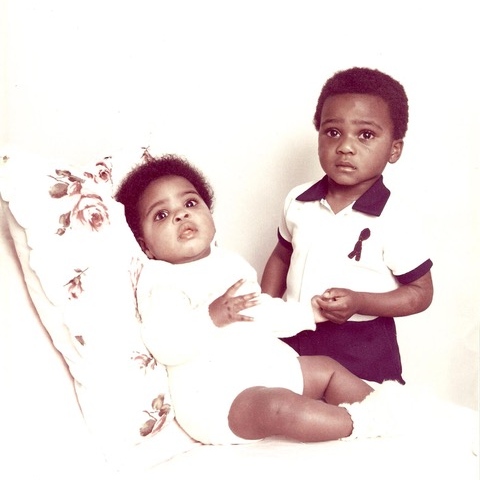
Steve recalls how on their estate in south London, there was a National Front pub over the road. Agatha’s family often had racist graffiti daubed on their door. Agatha, explains Steve, “did a lot of stuff to get us through all of that, to better our lives. She was working full-time.” Thanks to his mum’s diligent savings, they moved to a house off the estate when Steve was about 11 – a house that Agatha still lives in to this day.
Agatha says she allowed Melissa to get away with a lot of things that she didn’t allow Steve to, “because she was younger – and she took advantage of it. Every time she started wailing, everybody said, ‘Steve, stop it!’. But poor Steve hadn't done anything.” According to Steve, however, his mum treated them quite evenly.
When Agatha argued with teenage Melissa, Agatha’s mum told her that she was the same at that age and so should be patient with her. These days, Agatha says, “Melissa's very close to me. She will call me for advice; when she has a problem with anybody, she calls me first.” Steve also courts his mother’s advice “on pretty much everything”. “She's opinionated and will tell it like it is,” he asserts, “but she knows exactly how to deal with people.”
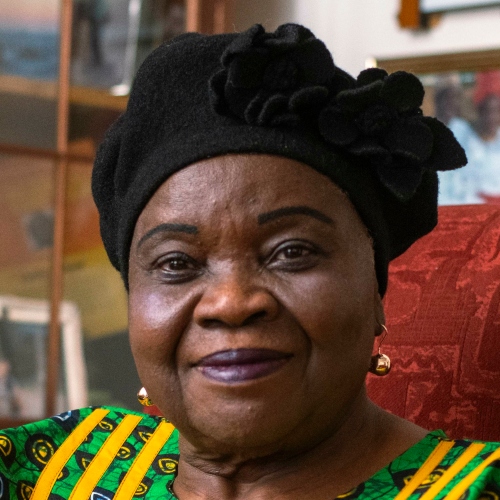
It’s very important what you teach [your children]. You must make them believe that love is more important than anger and quarrelling.
Celebrating a special mum
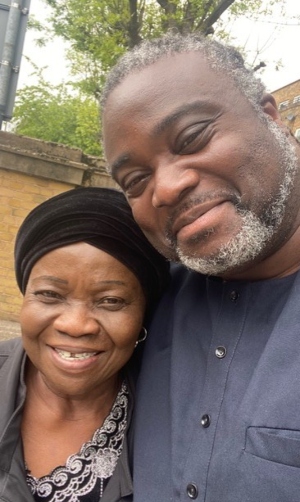
Mother’s Day is very important to Agatha. Steve traditionally takes her to a restaurant or invites cousins around to her house and cooks for everyone. “He’s always done something with me,” says Agatha. “He also brings flowers, and I say, ‘I hope you did not buy these flowers in a supermarket!’”
What’s more, smiles Agatha, as Melissa now lives in the US and Mother’s Day is celebrated on a different date there, she gets presents twice. “Melissa says, ‘Mum, you are lucky!’” Agatha laughs.
But the life lessons and love that Agatha has given her children are celebrated all year round. The biggest thing that Steve has learned from his mum? “Values, really. Mum likes the notion and closeness of family. She likes the idea that you should still be close as much as you can, despite what you're going through. So, what I've got from her is that there's nothing that's finite. You can always resolve something if you put your mind to it and have the desire to do it.”
And how does Agatha reflect on being a mother? “Some people that want to be a mother cannot be one,” she notes. “Being a mother is a blessing given to you by God and you should appreciate it and do the best you can as a mum for your kids. It’s very important what you teach them. You must make them believe that love is more important than anger and quarrelling. Because they learn that from you, and they take it with them into their own married life.”



